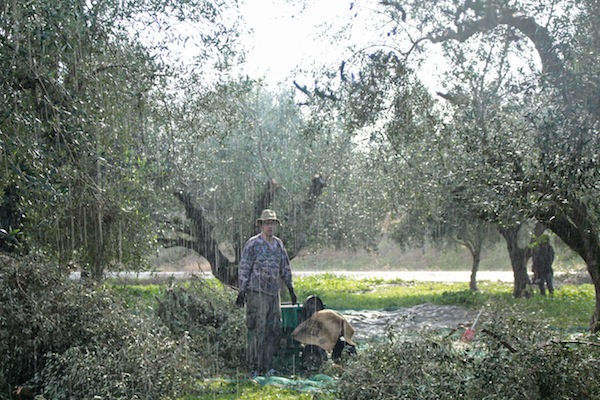Kalamata olives and oil are famous the world over and for good reason. We spent a weekend of sunshine and showers helping create some glorious greeny gold stuff.
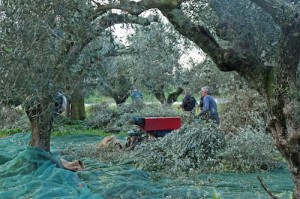
Framed by the branches, the olive pickers get to work
Our good friends Koyan and Stella live in Kalamata on the Peloponnese peninsula. Close by is Koyan’s father’s olive grove. Harvesting is a family affair, so it was a privilege for us to join.
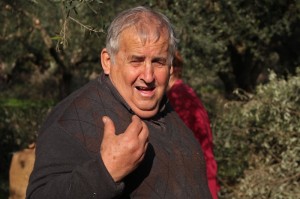
Koyan’s father
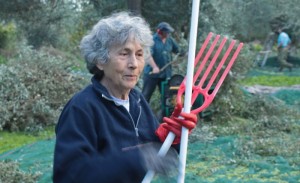
Auntie Anna
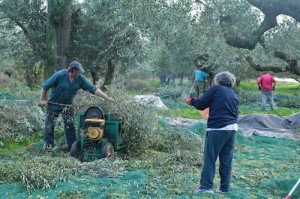
Everybody from the family pitches in
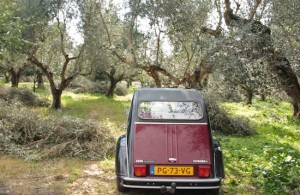
In the olive grove
Before the pickers even get to the groves, the ground below the trees has been cleared and cut back. Then the nets are laid to catch every precious fruit.
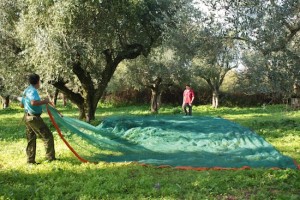
Nets are laid under the trees to catch the olives
Bigger branches are pruned back, to make way for the new year’s growth. The tops of the trees are beaten with long plastic forks, while the cut branches are threshed with machines or by hand.
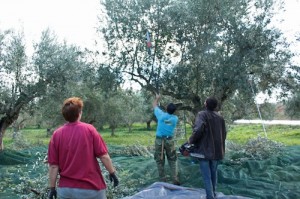
Takis pruning the tops of the trees
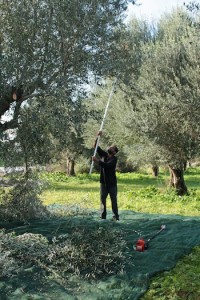
The tops of the trees are beaten with long sticks to loosen the olives
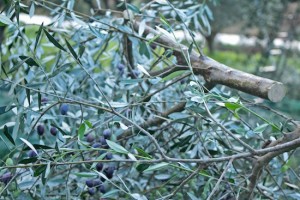
The trees are pruned to make way for new growth in the new season and more olives
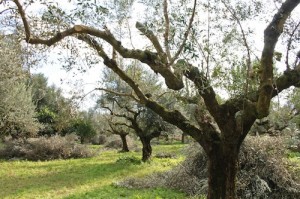
The newly-pruned trees, ready to grow next year’s harvest
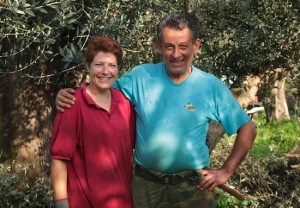
Georgia & Takis
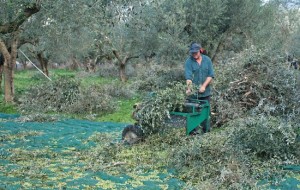
Geoff at the thresher
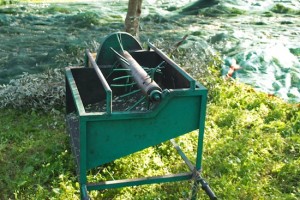
Olive threshers can save a lot of time!
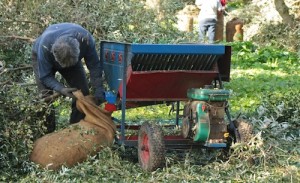
The olive threshing machine feeds the olives straight into the bag
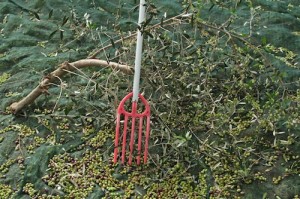
The cheery red trident is used to bash the olives off the branches
It’s hard manual labour, so there is always a hearty lunch beneath the trees, brought by Koyan’s mother. The already-filled sacks make handy seats
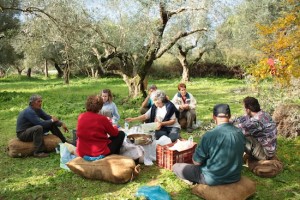
Picnic in the olive grove
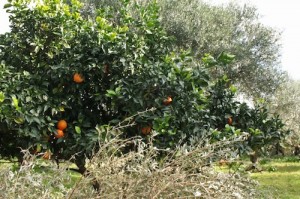
Clementines grow in the olive grove and make a refreshing energy boost
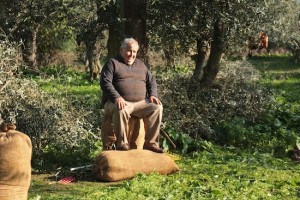
The olive king!
After lunch it’s back to work. Bagging the olives is a hard and heavy job. First large yellow rakes are used to clean out the branches and leaves, leaving just the olives behind in the nets.
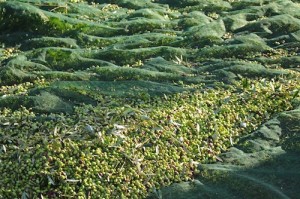
An ocean of olives
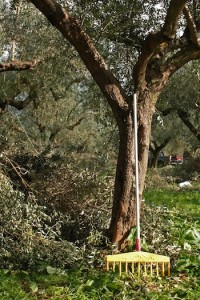
The big yellow rake
Then the fruit is scooped into hessian sacks, tied and stacked.
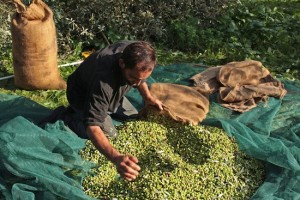
Scooping up kilos of olives
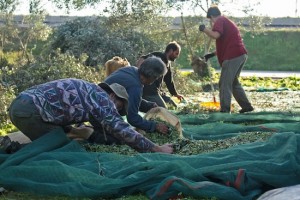
The olives are bagged into 50kg sacks
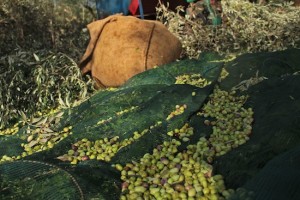
Olives ready to be bagged
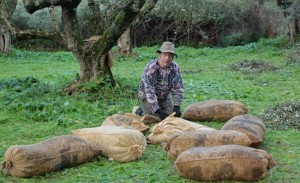
Koyan wrestling the olive sacks
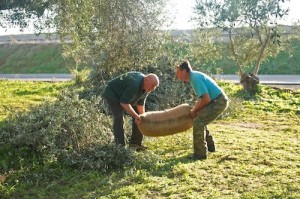
It takes two people to lift the 50kg bags
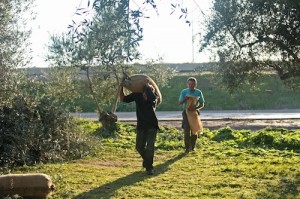
The olive pickers are incredibly strong
The work doesn’t stop until all the olives are picked – come rain or shine!
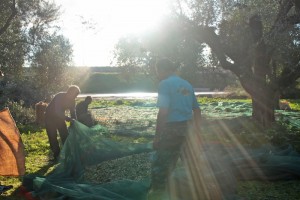
The last light of day streams through the olive branches
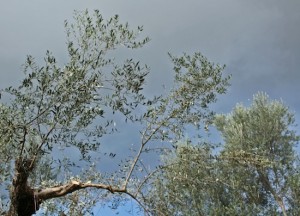
The blue skies suddenly clouded over
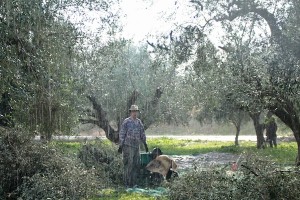
The rain in Greece falls mainly on Koyan!
Once they are all gathered (and you have got the van out of the mud) – it is immediately off to be processed. They are pressed that very same night.
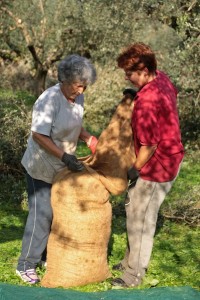
Auntie and Georgia heaving 50kgs of olives into sacks
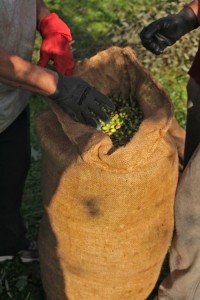
The olives go straight from the grove to the press
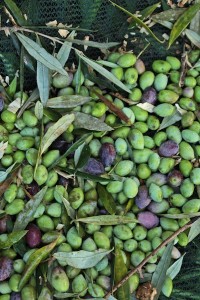
The olives for oil are smaller than the famous Kalamata olives for eating
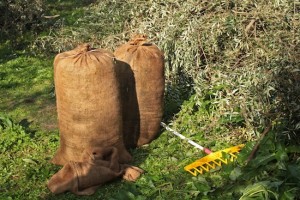
Ready for the olive press
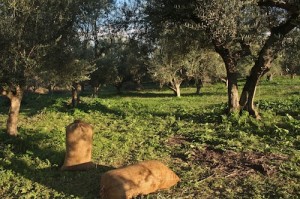
The last sack loads as the sun begins to set
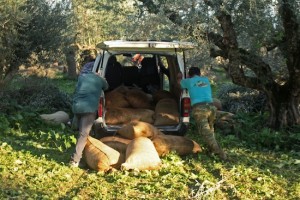
We picked so many olives we bogged the van in the mud!
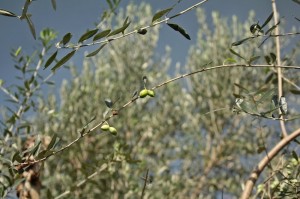
The ones that got away!
Nearly 70 sacks were collected from the Kokkorogiannis olive grove. Each bag produces nearly 8 litres of oil
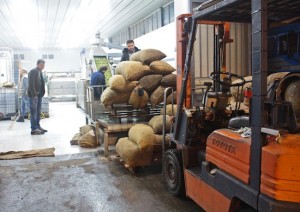
The olives come by the pallet load into the brightly lit presses
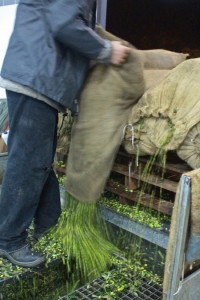
The olives are poured into the hopper by the sackload
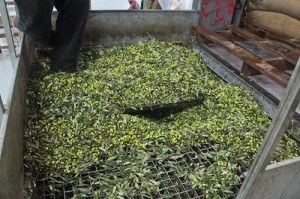
Ankle deep in olives
They are washed and separated from twigs and leaves…..
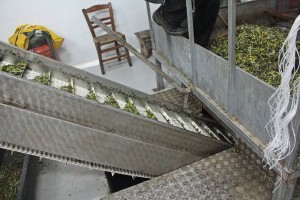
Separating the fruit from the sticks and leaves
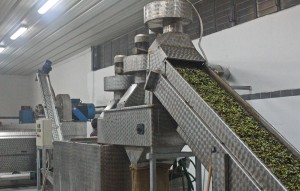
The fruits track up the conveyor, shaking out the detritus as they go
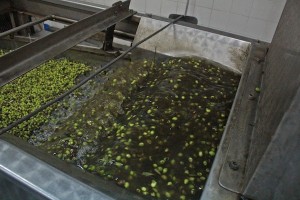
First wash your olives
… then they’re mushed into almost a paste…..
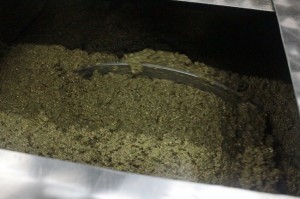
The olive flesh is churned to break it down and begin the pressing process
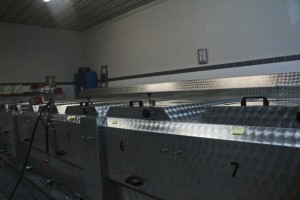
Low tech yellow stickies mark the tanks with our olives
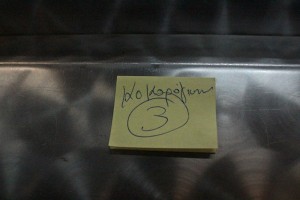
Our olives
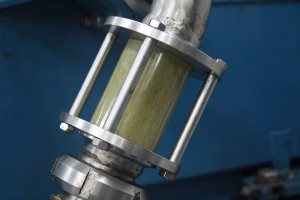
From pulp to puree
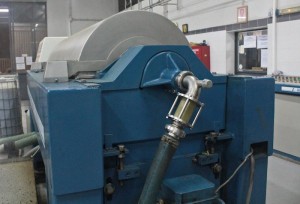
From the puree phase it gets further pressed
… then further treated to extract the stones from the pulp and finally cold-pressed until the golden liquid runs from the taps.
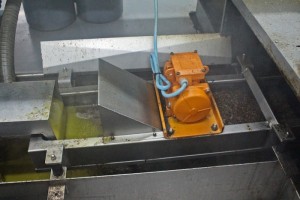
Separating the pits
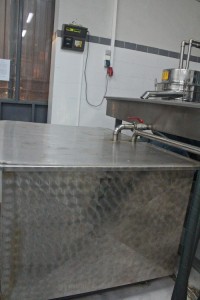
The huge steel tub of freshly pressed oil. The black box on the wall is the weighing scale
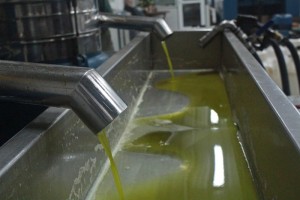
On average Greeks use 18kgs of olive oil EACH per year!
It is good enough to eat straight from the pipe onto a slice of fresh bread.
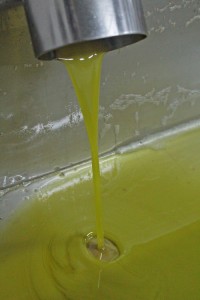
The golden oil on the final pour
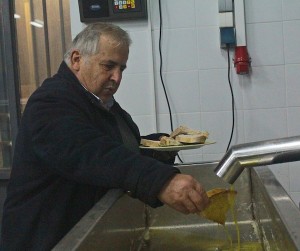
The Olive King inspecting the final product
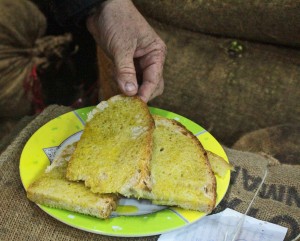
Crusty bread coated with oil, fresh from the presses
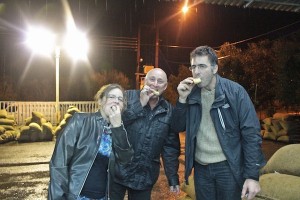
The olive pickers turn olive tasters
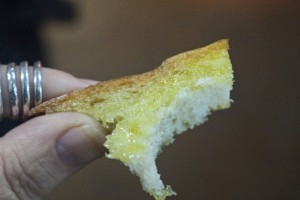
Tasty treats
So, as you tuck into your Christmas feasts this season, spare a thought for the men and women of the olive groves. And thank you to the Kokkorogiannis family for letting us be a small (and comparatively feeble!) part of their harvest.

